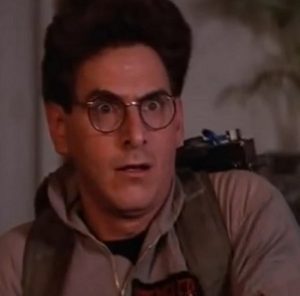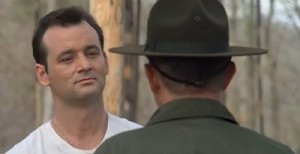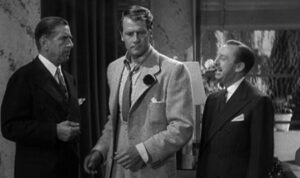Harold Ramis, whom President Obama labeled “one of America’s greatest satirists,” died this week shortly before this Sunday’s Oscars. His list of co-writing credits is astonishing: Animal House, Stripes, Caddyshack, Ghostbusters, Groundhog Day. He also directed the latter, Caddyshack, and Vacation. I’m sure the Academy will clap enthusiastically this weekend when his face appears in the “In Memoriam” tribute, but they won’t express what they should: regret. Ramis never won an Oscar; in fact, he was never even nominated.
In the years the Academy snubbed Ramis, comedies did make appearances in the original screenplay category, including Private Benjamin, Splash, Beverly Hills Cop, Sleepless in Seattle, and Dave. But many of the nominations were of grim films you didn’t know then, much less now. The following were the original screenplay winners the years Ramis could have been nominated:
Coming Home (Animal House), Melvin and Howard (Caddyshack), Places in the Heart (Ghostbusters), and The Piano (Groundhog Day).
Most Oscar nominees for original screenplay are not bad movies; the Academy saves their embarrassing choices for the best film category (Crash, anyone?) But have these screenplay winners stood the test of time? Have they influenced you—or anyone you know—in any way?
Here’s a test for you:
- Can you quote from it?
- Do you adopt cultural affectations from it (perhaps Roman)?
- Have you sung along with it?
- Does it give you more understanding for the weak kid or the outsider, perhaps make you feel more comfortable challenging authority? (See this great Ramis bio.)
- Does it bring back childhood memories that make you grin, maybe your best Halloween costume ever?
- Have you lost count of how many times you’ve seen it?
- Do you (be honest) feel tempted to dance with a certain character’s nemesis during the closing scene?
Of course, the Academy—and critics in general—have long shown more appreciation for drama than comedy, failing to see in it the far subtler, and often more trenchant and artful cultural critique it can provide. In 1941, Preston Sturges, a writer/director who, like Ramis, was fond of what’s often dismissed as “adolescent” humor, wrote an entire film addressing the greater appreciation given to drama, Sullivan’s Travels. But unlike with the usual Oscar winners, this time, the case for comedies is much more persuasive.
It begins with a scene between a director (Sullivan, played by Joel McCrea) and his bosses (Mr. LeBrand and Mr. Hadrian). Sullivan has decided to write a serious film, which his bosses fear will be less profitable than his usual comedies. Why not do a sequel to your Ants in Your Plants of 1939 instead? they ask him. His movies are inspiring, they tell him. They don’t, as Hadrian puts it, “stink with messages.”
Sullivan tries to argue them into supporting his new effort, showing them a scene from his O Brother, Where Art Thou? (yes, Coen fans, that’s where they got it)
Sullivan: “You see the symbolism of it?….It teaches a lesson, a moral lesson, it has social significance.”
Hadrian: “Who wants to see that kind of stuff? It gives me the creeps.”
….
Sullivan: “I want this picture to be a commentary on modern conditions, stark realism, the problems that confront the average man.”
LeBrand: “But with a little sex.”
….
Hadrian: “How about a nice musical?”
Sullivan: “How can you talk about musicals in a time like this, with the world committing suicide, with corpses piling up in the streets?…..”
Hadrian: “Maybe they’d like to forget that.”
After Hadrian convinces Sullivan he’s too inexperienced with suffering to direct movies about it, the latter decides to go on a quest to learn about poverty firsthand. A despondent LeBrand barks at his assistant, “Get me a copy of that O Brother, Where Art Thou? I guess I’ll have to read it now. Make that two copies. Why should I suffer alone?”
By the end of the movie, Sullivan agrees with his bosses that he should keep directing comedies. He discovers that his movies, silly as they may be, have something to offer that dramas never will: “There’s a lot to be said for making people laugh. Did you know that’s all some people have?”
In fact, Sturges begins the movie with a dedication that could have been written for Ramis: “To the memory of those who made us laugh….in all times and in all nations, whose efforts have lightened our burden a little….” Not a bad epitaph, from one comedic genius to another.
Incidentally, Sullivan’s Travels (1941) ranked on the AFI’s top 100. But you guessed it: Not a single Oscar nomination.







Great post and I agree..he didn’t the recognition he deserved. I remember my first thought when heard…NOOOO…not Egon!
Michelle,
Did you hear about the Twinkie shrine to him? Awesome.
Leah
Ramis and Bill Murray did some funny films that I loved growing up as a kid. Stripes will always be a great film to me. That mud wrestling scene is forever molded into my brain which just loves the silly stuff.
I’ve been so interested at the way Murray has embraced Wes Anderson. Ramis and Anderson, though on the surface unalike, are both directors who have/had a great appreciation for silliness, which, like you, I love. Thanks! Leah
If you never have seen the thirty minute short of Laurel And Hardy in The Music Box, you have yet to live. It is silliness to the maximum :).
The Amnesia Romance Before Vows and Notebooks: Random Harvest (1942) | Cary Grant Won't Eat You
[…] back me up. But I have to admit that the Academy isn’t much kinder to romances than it is to comedies, and a so-called “women’s picture” like this one, focused on loyalty to one’s man, would be […]